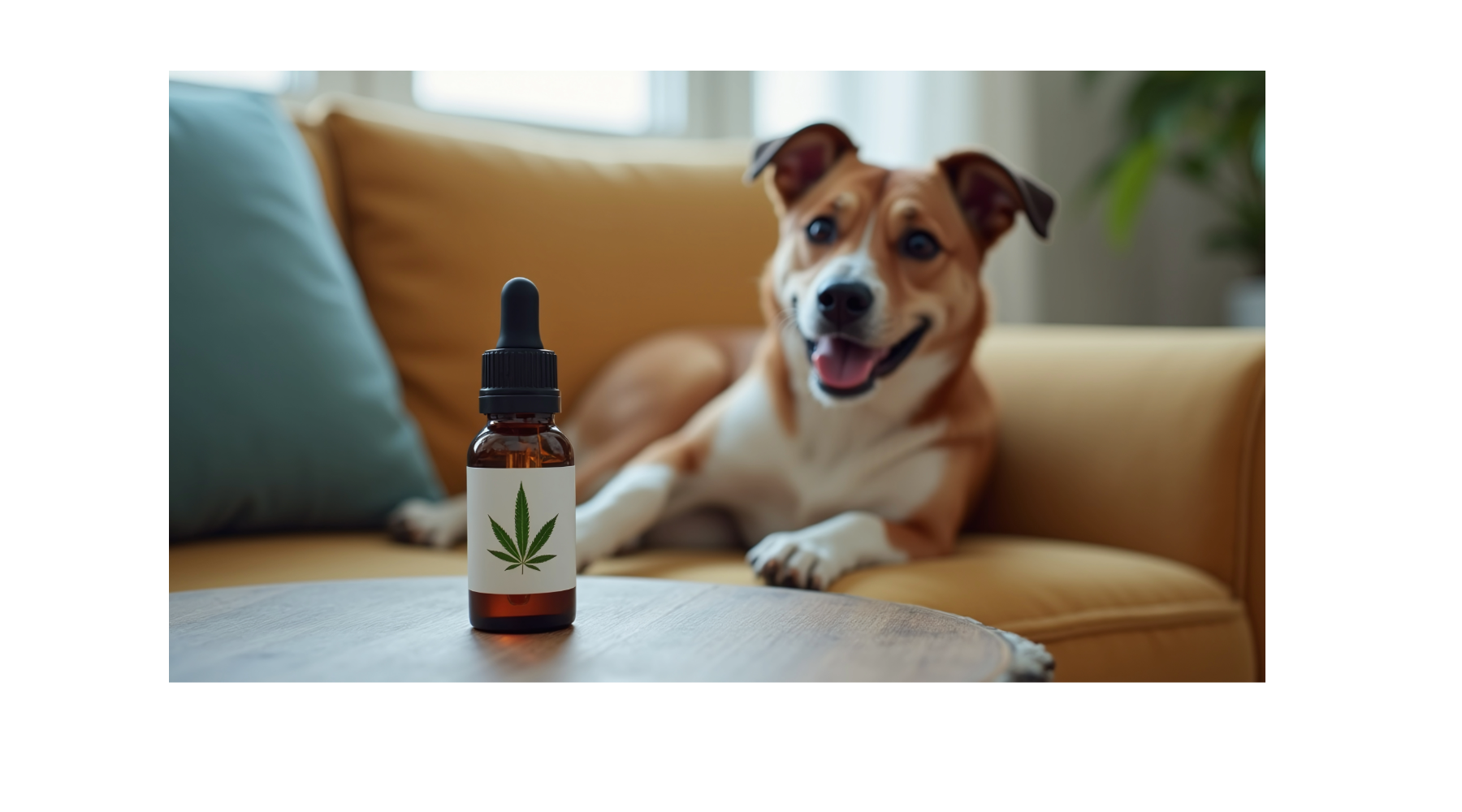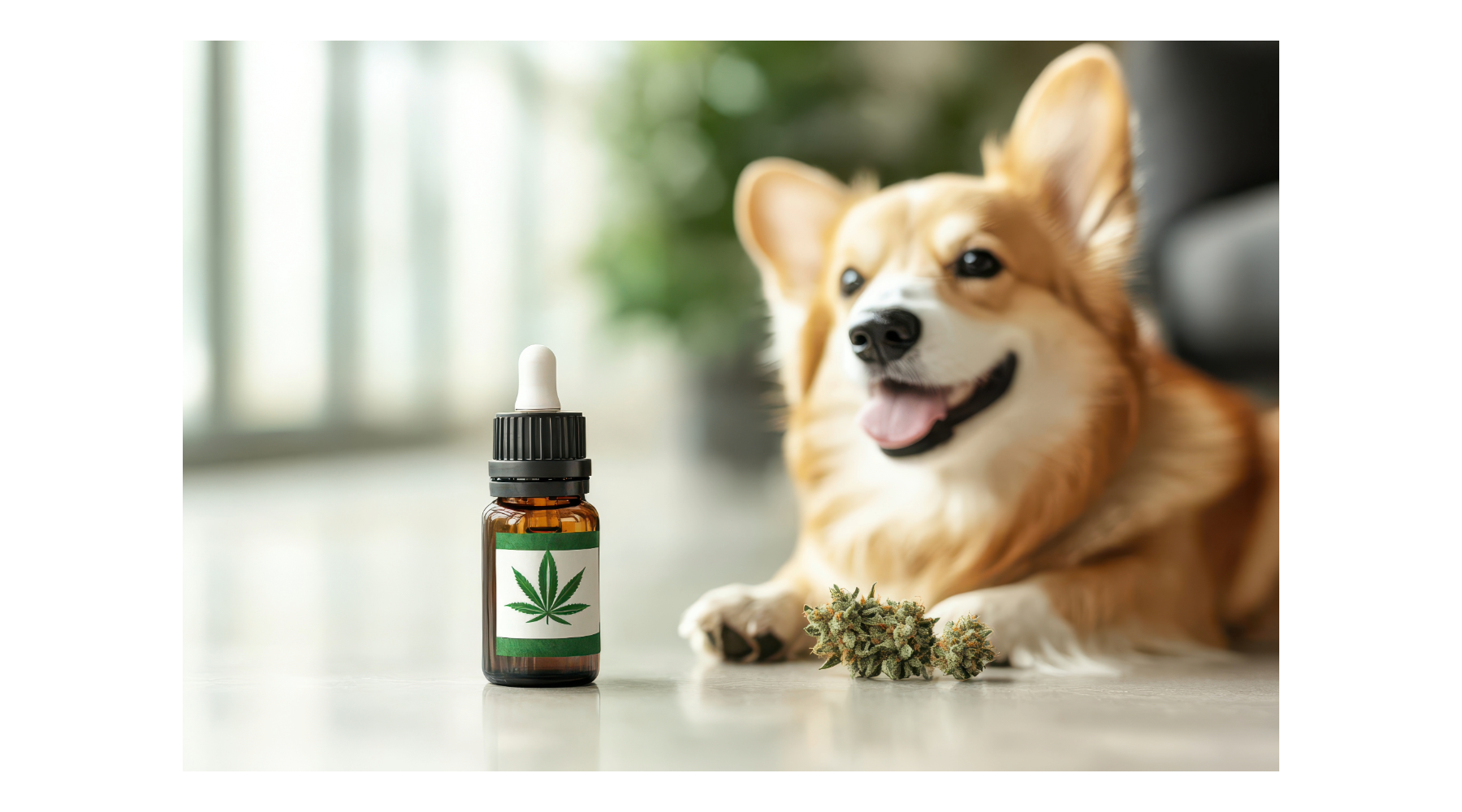In recent years, CBD (cannabidiol) has gained significant popularity as a potential health supplement for pets. From anxiety relief to pain management, many pet owners have found CBD to be a safe and effective way to help their furry companions live their best lives. On the other hand, THC (tetrahydrocannabinol), the psychoactive compound in cannabis, is a completely different story. While humans may enjoy THC for its relaxing effects, it’s a substance that can be harmful and dangerous for pets.
So why is CBD considered safe for pets, but THC should be avoided at all costs? To understand this, it’s essential to first look at the key differences between these two compounds and their effects on animals.
What is CBD?
CBD is a non-psychoactive compound found in cannabis. Unlike THC, CBD does not produce a “high” or alter consciousness. It interacts with the endocannabinoid system (ECS) in both humans and animals, which plays a role in regulating a variety of physiological processes, including pain, mood, and immune function.
For pets, CBD has been widely used to help manage conditions such as:
- Anxiety and stress: Many pets suffer from separation anxiety, travel stress, or fear of loud noises (like thunderstorms). CBD can help calm them down without sedating them.
- Chronic pain: Older pets, especially dogs, often deal with arthritis or other inflammatory conditions. CBD has anti-inflammatory properties that may help alleviate pain and improve mobility.
- Seizures: Some studies suggest that CBD may help reduce the frequency and intensity of seizures in pets, particularly in dogs with epilepsy.
What is THC?
THC is the compound responsible for the “high” that people experience when consuming cannabis. It binds to cannabinoid receptors in the brain and central nervous system, causing a range of effects, including euphoria, relaxation, and altered perception. However, these effects can be dangerous and harmful for pets.
While THC has been shown to have some medicinal properties for humans (such as pain relief, appetite stimulation, and nausea reduction), its effects on animals are quite different. Pets, particularly dogs and cats, are much more sensitive to THC than humans, and even small amounts can cause toxicity.
Key Differences Between CBD and THC in Pets
-
Psychoactivity:
- CBD: Non-psychoactive. It won’t alter your pet’s behavior or consciousness.
- THC: Psychoactive. It can cause pets to become disoriented, anxious, or even lethargic. In larger doses, it may lead to severe symptoms such as vomiting, tremors, and seizures.
-
Toxicity:
- CBD: Generally considered safe for pets when used in appropriate doses. Overdose is rare and typically results in mild side effects such as drowsiness.
- THC: Toxic to pets. Even a small amount can cause serious symptoms, such as drooling, loss of coordination, and potentially life-threatening situations. Pets that ingest THC need to be seen by a veterinarian immediately.
-
Effect on the Endocannabinoid System:
- CBD: CBD interacts with the endocannabinoid system without binding directly to the receptors that produce a “high.” It works to restore balance and homeostasis in the body, making it a useful supplement for managing various conditions in pets.
- THC: THC binds to cannabinoid receptors in the brain and nervous system, producing the psychoactive effects. This can be dangerous for pets, as their bodies aren't equipped to handle THC in the same way humans can.
-
Side Effects:
- CBD: Side effects are rare but can include mild drowsiness or changes in appetite. These effects are generally short-lived and not harmful.
- THC: Side effects are severe and can include restlessness, vomiting, diarrhea, loss of motor control, and in extreme cases, seizures or coma. These symptoms require immediate veterinary attention.
Why You Should Avoid THC for Pets
-
High Sensitivity: Pets, particularly dogs, are more sensitive to THC than humans. Even small amounts can lead to severe symptoms.
-
Risk of Toxicity: Since THC is toxic to pets, it can cause a range of harmful effects, including changes in heart rate, vomiting, and lethargy. In severe cases, it may require medical intervention, such as intravenous fluids or activated charcoal to limit absorption.
-
Unpredictable Effects: Pets metabolize substances differently from humans, making the effects of THC even more unpredictable. It’s difficult to know how much THC is safe for a pet, and there’s a high risk of accidental overdose.
Why CBD is Safe for Pets
CBD is non-psychoactive, meaning it doesn’t produce the "high" associated with THC. It works by interacting with the endocannabinoid system, helping to maintain balance in the body. Unlike THC, CBD doesn’t pose a risk of toxicity when given in appropriate doses.
Additionally, there are many pet-specific CBD products on the market today, including treats, oils, and capsules, all carefully formulated with safe dosages for animals. These products often contain no THC at all, ensuring that your pet can enjoy the benefits of CBD without the risks associated with THC.
Conclusion
While both CBD and THC come from the cannabis plant, they are vastly different in terms of their effects on pets. CBD is safe and can offer a wide range of potential health benefits for pets, from easing anxiety to managing pain and seizures. On the other hand, THC is toxic to pets and should never be used. Always consult your veterinarian before introducing CBD into your pet’s routine to ensure the right dosage and that it’s suitable for their specific needs.
When used responsibly, CBD can be a valuable tool in improving your pet’s quality of life, while THC should always be kept out of reach. It’s important to educate yourself and make informed decisions to ensure the safety and well-being of your beloved companion.
































